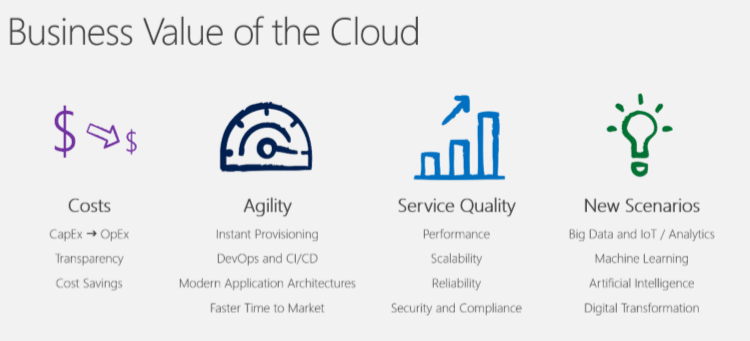

The cloud is a journey which includes the use of SaaS applications such as Office365, migration of on-premises applications to the cloud, and utilization of cloud services to bring entirely new kinds of functionality such as machine learning and big data and many others to improve your business. When investing in a cloud-based solution, CFOs are looking for financial consolidation, reporting needs and a cost-effective service.
It is important to know that cloud computing service costs can be complex and therefore the accounting element can be challenging. The cloud structure and model selected by an organisation impacts the pricing, costs and related accounting activities for both the Cloud Service Provider and the customer.
CFOs should carefully evaluate their organisation’s cloud structure, terms of the arrangement, and software usage, before determining and applying accounting activities.
Each organisation’s journey to the cloud is unique. There are a variety of reasons and benefits that should be acknowledged. The four major categories for cloud business value are: cost, agility, service quality, and new scenarios.

CFOs and their teams are the guardians for the critical data required to generate forecasts and support Seniors’ strategic plans and decisions. Today, having this information relating to sales, order fulfillment, supply chains, customer demand, and more helps them be at the forefront of the industry, which is why it is important to make the most out of your cloud service.
Building-in custom policies to set guardrails in your subscriptions, helps deploy fully governed environments throughout an organization with Azure Blueprints. It also manages costs by providing insights into cloud spend in order to get the most from cloud investments.
These technologies improve financial reporting, and provide external regulatory agencies with confidence in the data provided. Cloud solutions help CFO’s make sure their organizations are meeting the latest accounting standards.
Cloud technologies can help CFOs drive strategy with real-time data from both a top down and bottom up approach. The opportunity to review historical data can help CFOs to understand key trends and set targets and forecasts.
Better insights are another benefit of cloud technology that help CFOs take advantage of new markets and opportunities. With cloud business applications, fields can easily be added to help capture the right data. Those same fields can be included in any report and run real time at the business level. Anyone in the organization can slice and dice data into a format that will help their business. With improved insight, the CFO can penetrate new markets and uncover new opportunities backed by real time data.
The cloud offers organisations the potential to upgrade business and functional applications rapidly, with no capital outlay and no complex deployment cycles. From a CFO perspective, it is important to analyse all the different factors and benefits the cloud can offer to different business industries.
If you want to learn more about the Cloud from a financial perspective, sign up to our upcoming webinar below: